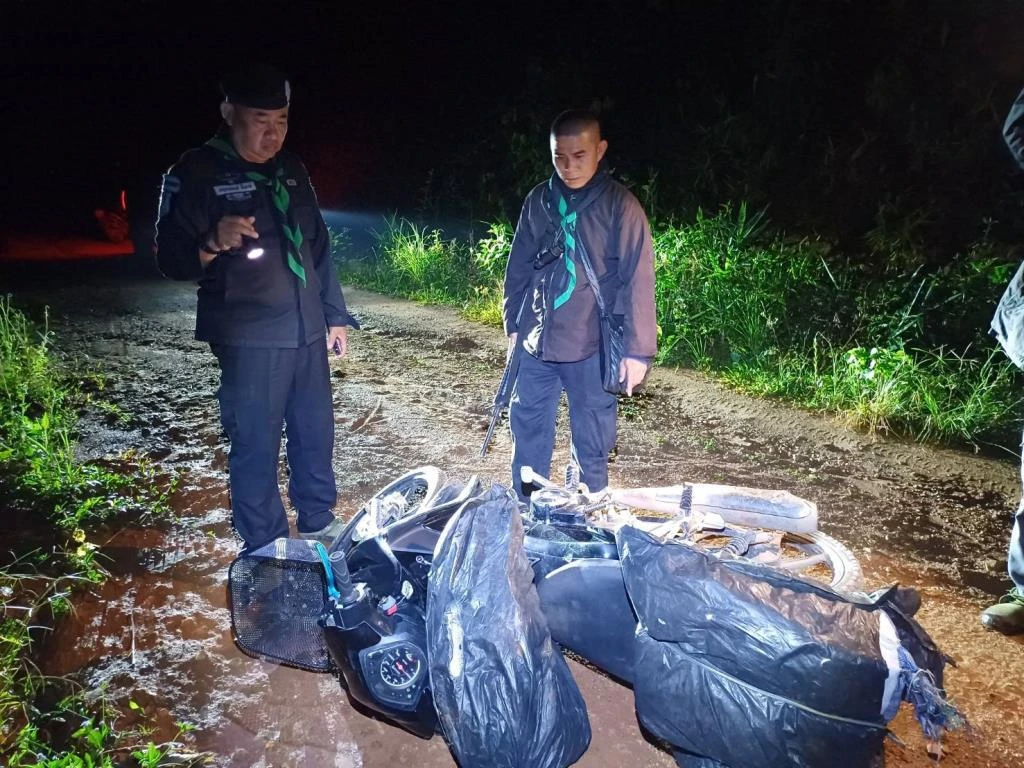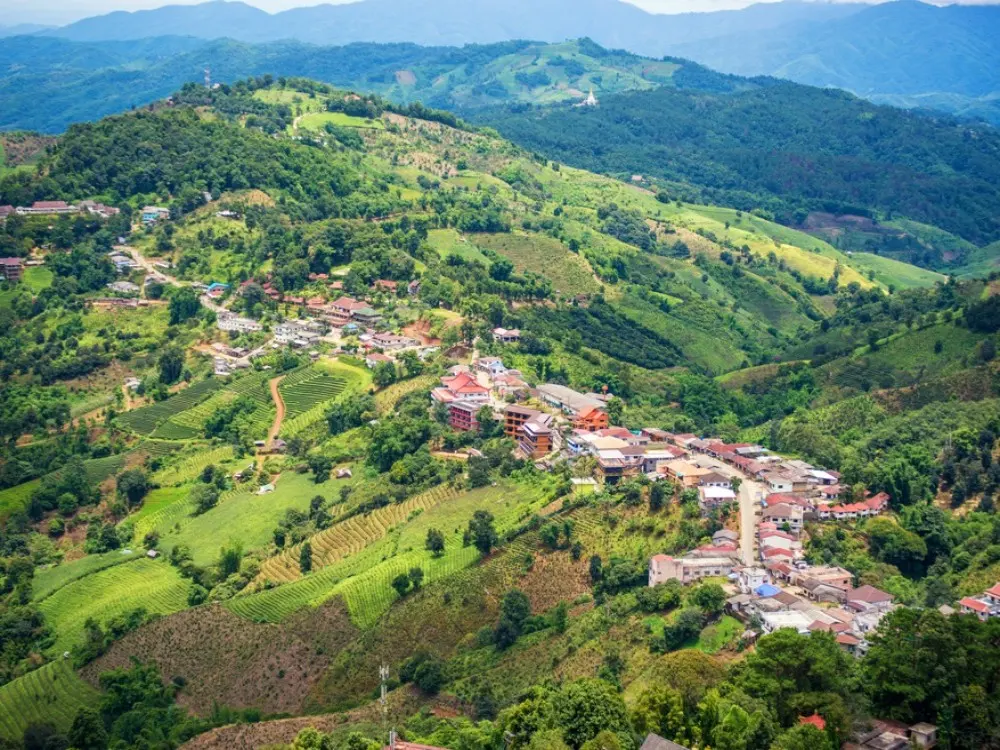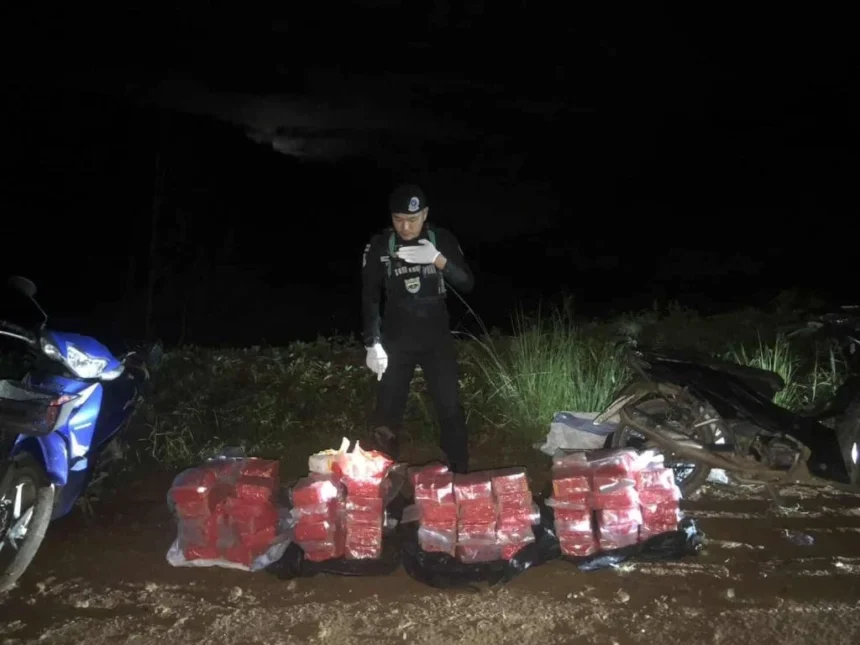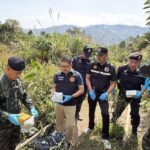CHIANG RAI – In the early hours of Friday, soldiers from Pha Muang Task Force’s 31st Task Force waited in the hills of Doi Mae Salong and spotted a drug gang riding motorbikes downhill late at night.
When the group reached the checkpoint, they abandoned both their bikes and the drugs, escaping into the darkness without a trace.
Soldiers from Ranger Company 3109, under Task Force 31, got a tip-off about a planned drug run along the Thai-Myanmar border in Mae Fa Luang district, Chiang Rai. Their team set up a checkpoint near Chiang Ja Sai village, Village 11, in Mae Salong Nok, starting from the early evening of 11 September.
Around 9:30 pm on 11 September, the team saw headlights in the distance. Two motorbikes were coming down the mountain from Sam Sung village, Mae Salong Nai, heading toward the checkpoint.

The officers revealed themselves and signalled for a search. On spotting the soldiers, both riders dumped their bikes in the middle of the road and ran off into the night. The soldiers moved in to investigate and found two unregistered Honda Wave motorbikes left behind.
They also discovered four black plastic bags, abandoned with the bikes.
Inside the bags were 99 packets of crystal meth, with each weighing about one kilogram, totalling nearly 99 kilograms. Officers seized the drugs and are now working to track down the network behind this haul.
Drug Smuggling in Doi Mae Salong, Chiang Rai
Doi Mae Salong, also called Santikhiri, sits in the mountains of Mae Fah Luang District in Chiang Rai Province, northern Thailand. This area has a complicated history because it sits near the Golden Triangle, the meeting point of Thailand, Myanmar, and Laos, which is known for drug trafficking.
Since the mid-1900s, the hills around Doi Mae Salong have been linked to the opium trade. Over the years, illegal activities shifted from opium to synthetic drugs such as methamphetamine (known as yaba or “ice”).
The land is steep and tough to cross, and the border is easy to slip through. Ethnic armed groups from Myanmar have also used the area, moving drugs on foot, by hidden trails, or in modified vehicles. While tourists now come for the tea plantations and local culture, the area’s ties to the drug trade never fully disappeared, so Thai officials still watch the region closely.

The story of smuggling in Doi Mae Salong goes back to the 1960s. After fleeing fights with the Communists in China, members of the Kuomintang (KMT) army crossed into the area from Myanmar. Thailand allowed them to stay if they helped fight local communist factions. The KMT sold opium to pay for supplies and operations at first.
Villages such as Ban Hin Taek (now Ban Therd Thai), beyond Doi Mae Salong, became bases for leaders like Khun Sa. From 1974 to 1982, Khun Sa ran a huge opium operation here. His control changed smuggling routes and brought in millions. Reports say some Thai army units let this happen because they wanted to limit the power of the Burmese and communist groups nearby.
Today, the Pha Muang Task Force joins local police and other units to patrol the border, working from posts like Doi Chang Mub. They use tips from the public and sniffer dogs to catch traffickers.
The UN Office on Drugs and Crime (UNODC) backs projects that help farmers switch to clean farming. The Mae Fah Luang Foundation encourages people to grow tea, coffee, and bamboo instead of poppies. Chiang Rai’s mayor connects local growers to buyers, which helps reduce the need for illegal income from drugs.














